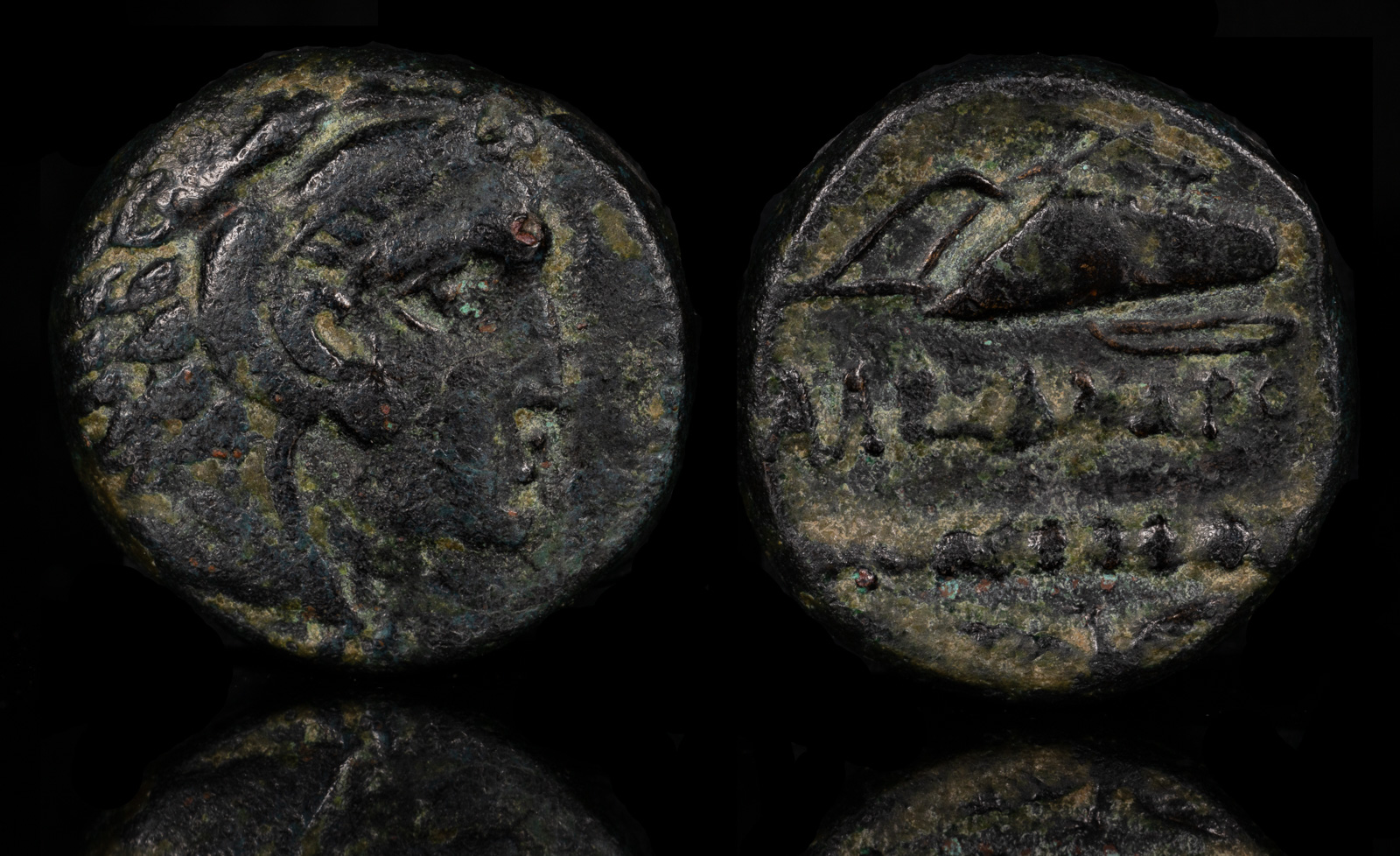
Alexander III ‘the Great’ Æ 16mm
Amathus, circa 325-323 BCE.
Head of Herakles to right, wearing lion skin headdress / Club and bow in bowcase, ΑΛΕΞΑΝΔΡΟΥ between; eagle flying to left below.
Price 3090a. 4.66g, 16mm, 3h.
Ex Roma
Androkles of Amathos joined Alexander in his Siege of Tyre (against Azemilkos) by lending him several ships, and perhaps by commanding one himself.
Therein lies our knowledge of Androkles. It was pretty smart of him to do that, right? If he hadn’t, his name would have escaped history completely. It also worked out because Alexander was victorious. Those in Cyprus who didn’t support him lost territory to those who did.
We don’t think Androkles died during the campaign, but we don’t know. We do know his compatriat Pnytagoras lost his flagship, and that was the boat he most likely would have been on.
But our hopes are that Androkles returned to sunny Amathos and did the standard kingly stuff one did at the time. Of course, Amathos wasn’t that big of a kingdom. Cyrprus itself is small and it was divided into ten kingdoms. So, Androkles could go out riding if he wanted to, but he couldn’t go too far. Otherwise, some other king would capture him and that would suck.
Androkles seems to have been the last king of Amathos. Eventually, the Greeks realized you didn’t need ten guys running such a small island, so they put one guy in charge of the whole thing. That guy was Menelaus, who was the brother of Ptolemy I. Eventually he too was chased off by Demetrios, but the island continued to bounce around rulers for a time.
Androkles of Amathos sails with the Aegean fleet of Pharnabazos III and Autophradates.
Amathos under Androkles, Salamis, and Soloi in Cyprus submit to Alexander the Great after his victory over the Persian Empire at the Battle of Issos. Chios also comes under Macedon.
Androkles of Amathos, Pnytagoras of Salamis, and Pasikrates of Kourion join Alexander the Great at the Siege of Tyre, where their qinqueremes are destroyed.
The flagships of Pnytagoras of Salamis, Androkles of Amathos, and Pasikrates of Kourion are destroyed while anchored in the harbor of Tyre.